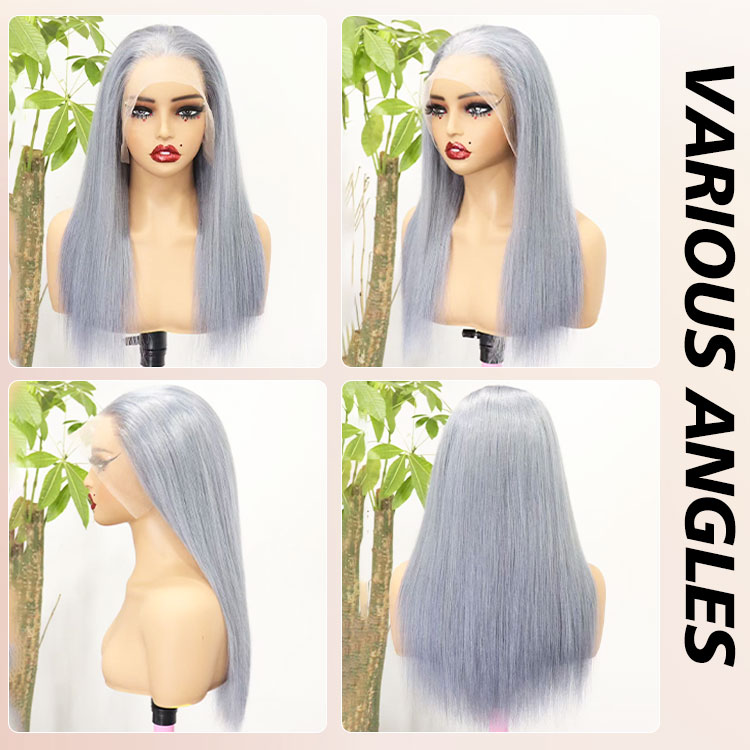The beauty industry is witnessing a significant boom in the demand for hair extensions has skyrocketed. As a result, wholesale hair extensions have become a vital part of the supply chain, bridging the gap between manufacturers and retailers. This article will explore the thriving market of wholesale hair extensions, the factors contributing to their popularity, and the strategies that industry players can employ to capitalize on this trend.
The Rising Popularity of Wholesale Hair Extensions
Several factors are driving the increasing demand for wholesale hair extensions:
- Fashion Trends: Hair extensions have become a go-to fashion accessory, allowing individuals to easily change their hairstyle, length, and volume.
- Celebrities and Influencers: High-profile personalities often sport different hairstyles using extensions, which has inspired their followers to try similar looks.
- Convenience: Hair extensions offer a quick and non-permanent way to achieve the desired hairdo without waiting for natural hair to grow or undergoing chemical treatments.
- Quality and Variety: With advancements in technology, manufacturers can now offer high-quality, natural-looking extensions in a wide variety of textures, lengths, and colors.
Understanding the Wholesale Hair Extension Market
To effectively navigate the wholesale hair extension market, it is essential to understand its key aspects:
- Types of Hair Extensions: Extensions come in various types, including clip-in, tape-in, sew-in, and fusion. Each type has its unique selling points and target market.
- Hair Quality: High-quality extensions are typically made from 100% human hair, which can be further categorized by origin (e.g., Indian, Brazilian, Peruvian) and grade (e.g., Remy, virgin).
- Sourcing Ethics: Ethical sourcing is a significant concern, with consumers and retailers increasingly favoring products that are collected sustainably and with respect for donors.
Strategies for Wholesale Hair Extension Suppliers
To thrive in the wholesale hair extension market, suppliers should consider the following strategies:
- Quality Control: Implement stringent quality checks to ensure that only the best extensions reach the market. This includes checking for proper alignment of cuticles, absence of chemical processing, and consistency in texture.
- Ethical Sourcing: Establish and maintain ethical sourcing practices to meet the growing demand for sustainable and ethically produced products.
- Product Diversity: Offer a wide range of products to cater to different market segments, including various textures, lengths, and colors.
- Customer Service: Provide exceptional customer service, including fast shipping, easy returns, and a dedicated support team to assist with any issues.
- Marketing and Branding: Develop a strong brand identity and utilize effective marketing strategies to reach potential clients. This can include social media campaigns, influencer partnerships, and participation in beauty trade shows.
- Innovation: Stay ahead of the curve by continuously innovating your product line, whether it’s through new textures, improved application methods, or eco-friendly packaging.
Challenges in the Wholesale Hair Extension Market
While the market for wholesale hair extensions is lucrative, it also presents several challenges:
- Competition: The market is highly competitive, with new players entering the industry regularly.
- Counterfeit Products: The presence of counterfeit and low-quality extensions can damage the reputation of legitimate suppliers.
- Regulatory Compliance: Adhering to international regulations regarding product safety, labeling, and import/export laws can be complex.
- Market Saturation: As the market grows, avoiding saturation and differentiating your brand becomes increasingly challenging.
The Future of Wholesale Hair Extensions
The future of wholesale hair extensions looks promising, with several trends poised to shape the industry:
- Technological Advancements: The use of technology in hair extension manufacturing, such as advanced coloring techniques and improved fiber materials, will continue to evolve.
- Sustainable Practices: The push for sustainable and ethically sourced products will likely grow, with consumers and retailers demanding transparency and accountability.
- Personalization: Customizable hair extensions that cater to individual preferences will become more prevalent, driven by the desire for personal expression.
Conclusion
Wholesale hair extensions have become a vital component of the beauty industry, driven by fashion trends, celebrity influence, and consumer convenience. As the market continues to expand, suppliers must focus on quality, ethics, and innovation to stay competitive. By understanding the market dynamics, employing effective strategies, and staying attuned to emerging trends, wholesalers can position themselves for long-term success in the dynamic world of hair extensions. The future is bright for those who can adapt and meet the evolving needs of retailers and end consumers.





